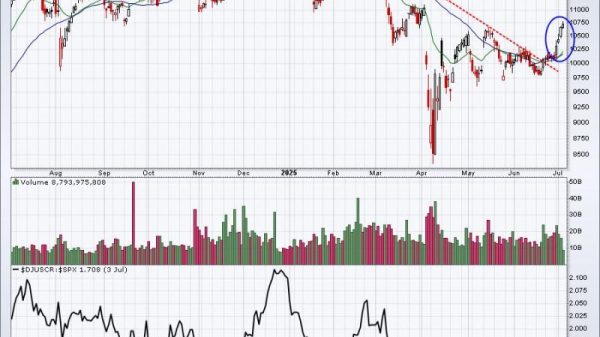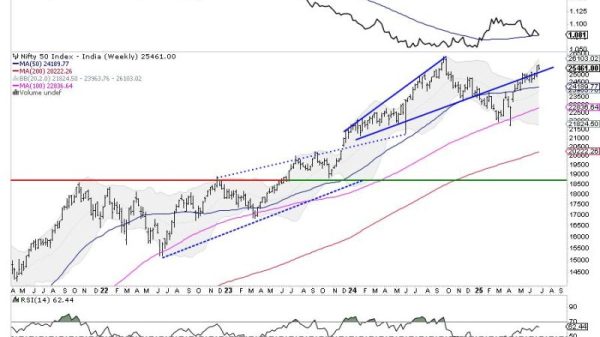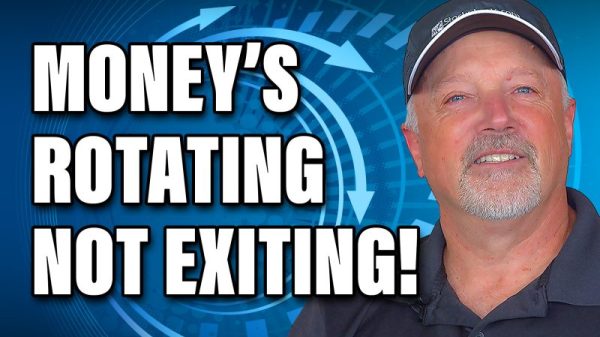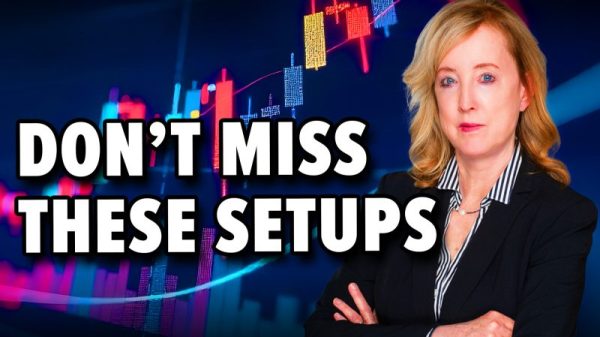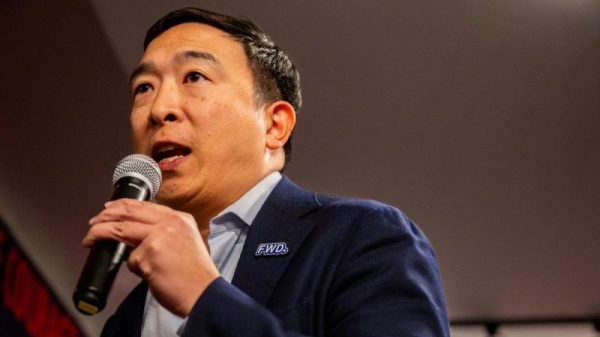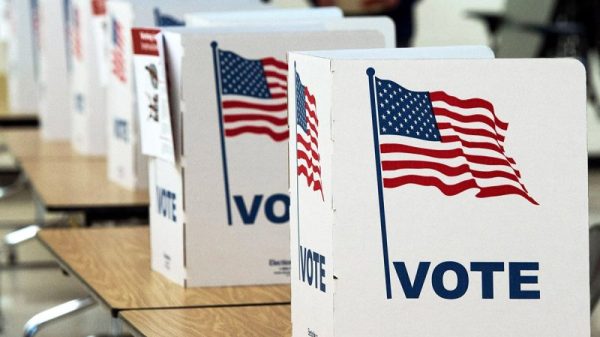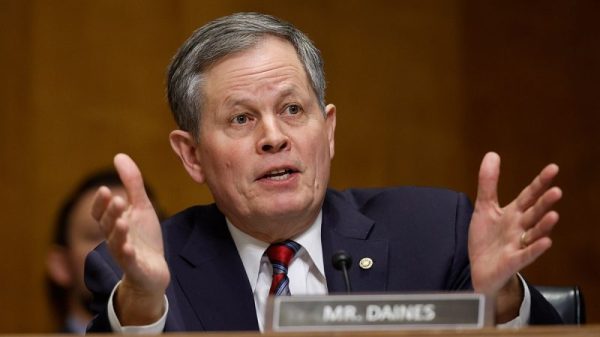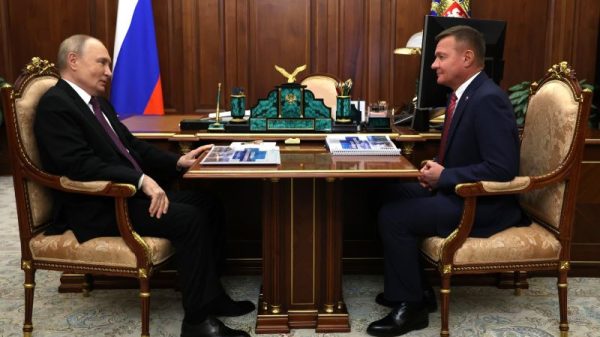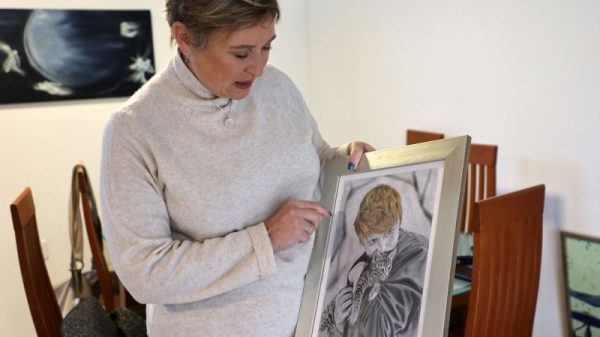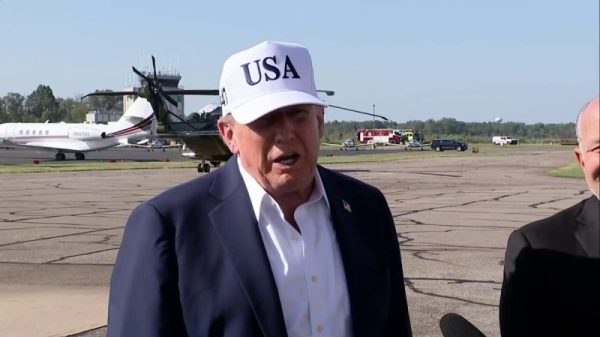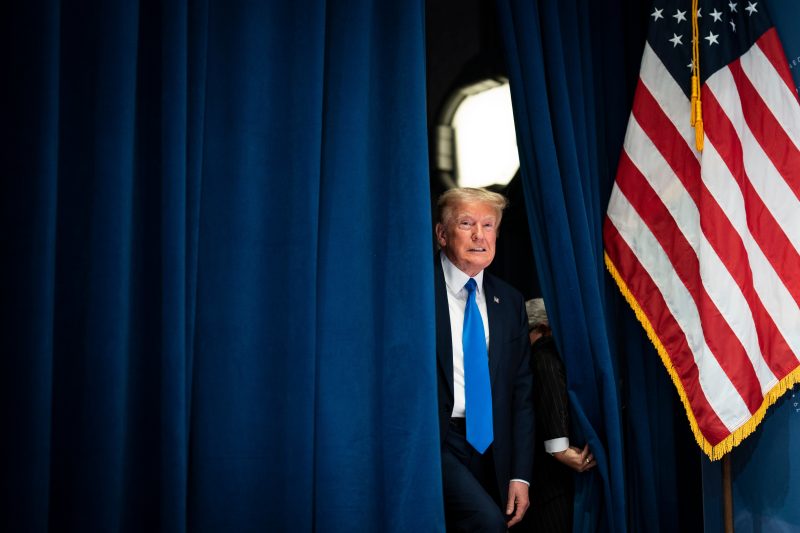Donald Trump’s success in the 2016 Republican nominating contest was, at its essence, uncomplicated.
Running against a cadre of sitting and former elected officials, Trump said things they wouldn’t — mostly the things that were being said in the right-wing media and by pundits on Fox News. The reputation for “truth-telling” his supporters embrace was born of his willingness to elevate false, popular claims, particularly about the left. He wasn’t elected for his policies; in fact, he broadly rejected the idea that people cared much about policy.
The only thing that’s changed over the past eight years, really, is that everyone should know the playbook by now. We should know that he will 1) flood the zone with things that are burbling on the right-wing fringe, 2) make sweeping promises without much follow-through and 3) reject any criticism out of hand, spinning it into a reason to praise himself.
And so it was with his interview on NBC News’s “Meet the Press” that aired Sunday.
One of only a few interviews with a traditional news outlet since he announced his 2024 candidacy in November, the discussion began precisely as his 2015 announcement at Trump Tower had begun: He would make America great again in part by repelling the hordes of criminal immigrants flooding into the country.
“They come from prisons. They come from mental institutions, insane asylums,” he said as he was answering the first question from host Kristen Welker. “They say, ‘Sir, please don’t use that term,’ but it’s true.”
As was the case eight years ago, this is not generally true. Some of those seeking to enter the country may have criminal records or even mental illness, of course, but there’s no indication that this constitutes a significant component of those seeking asylum or work in the United States. It’s almost certainly true that the universe of people who have served in senior positions on Trump’s political campaigns is more densely populated with accused criminals than the pool of recent immigrants.
Welker didn’t push back on this claim, in large part because Trump quickly moved on to another bit of patter. Flooding the zone.
She did offer some resistance to his attempt to present the film “2000 Mules” as a legitimate indictment of the 2020 election. Created by Dinesh D’Souza, recipient of one of Trump’s first presidential pardons, the film’s allegations of drop-box-stuffing have been completely eviscerated. When Trump told Welker, for example, that “we have thousands of essentially motion pictures of people stuffing the ballot boxes,” he was referring to a common belief about the movie that is entirely false. The movie shows only a few examples of someone casting more than one vote at a drop box; none has been shown to have been illegal. One clip, described in the film as committing a crime, was determined to have depicted a man legally adding the ballots of family members. That man is now suing D’Souza.
Welker rejected Trump’s assertion, eager to move on to a different subject. There was probably a way for someone well-versed in the arcana of the allegations to push back harder on Trump’s claims; it’s very safe to assume that his ability to defend the movie is untested and flimsy. But this would almost certainly have simply led to Trump shifting the goal posts somewhere else, until he made a claim that his interviewer didn’t rebut. Falsehoods and conspiracy theories will always find a sturdy enough foundation on which they can rest.
Once you hand Trump a megaphone, he’s going to do with it what he wants. He knows how to use it. This is why it’s better to pretape his interviews, allowing for obvious dishonesties such as the one about “2000 Mules” to be elided or presented with context. For whatever reason, despite taping the interview in advance, NBC chose not to edit out the election falsehoods.
Welker did present Trump with questions about his past actions and future plans. The results were unsatisfying.
Consider Trump’s answer to questions about his efforts to subvert the 2020 election. Welker noted that he’d been told by numerous people, including “the most senior lawyers in your own administration,” that the election was over and he’d lost. She asked why he instead turned to outside attorneys, referring to Rudy Giuliani, Sidney Powell and others.
“You hire them, you never met these people. You get a recommendation,” Trump said. “They turn out to be RINOs” — Republicans in name only — “or they turn out to be not so good. In many cases, I didn’t respect them. But I did respect others. I respected many others that said the election was rigged.”
Later, she asked him if, should he win in 2024, he would pardon himself as protection against the federal charges that ensued.
“I had a couple of attorneys that said, ‘You can do it if you want,’” Trump replied. “I had some people that said, ‘It would look bad if you do.’ Because I think it would look terrible.”
He also claimed that the call he placed to Georgia officials, the centerpiece of the criminal charges he faces in Fulton County, Ga., was necessarily innocuous because so many lawyers were on the call.
“Who is going to be talking badly when I have lawyers and many other people on the line?” he said to Welker. “Nobody’s going to say something bad.”
There’s no consistency here. Attorneys are a shield against the Georgia charges, a hall pass for a self-pardon or a biased group of bums when they tell him the election wasn’t stolen. The through line is simply that their standing is tied to what Trump wants to do.
What did we learn? Nothing in particular. Trump offered an objection to a strict ban on abortion, but who knows what he’ll advocate in a week? In 2015, he took five positions on the subject in three days. He did promise that he’d reach a deal with both sides that would make everyone happy, which might be the most obviously untrue thing he said in the entire interview.
Trump said he might pardon leaders of the Proud Boys. He said he might tap South Dakota Gov. Kristi L. Noem (R) as his potential running mate. He declined to outline his strategy for ending the war in Ukraine (something he’s repeatedly insisted was within his power), arguing that he didn’t want to tip his hand. This, too, echoed 2015: When he didn’t want to answer a question, he’d claim that, as a dealmaker, he didn’t want to constrain his options in advance.
It’s hard not to come away from this with a sense of futility. He’s the leading candidate for the Republican nomination and, in that role, demands scrutiny. But we already know what interviews will produce. Talking to Trump means offering a platform for false claims while generating pledges to which he feels no obligation to adhere.
Welker concluded the interview by asking if he’d somehow try to secure a third term in office if he won in 2024. Trump said he wouldn’t because “in six months to a year, many of the problems, almost all of the problems that you and I have just spoken about, will be solved.”
And if not, it will be someone else’s fault. Probably a lawyer’s.







